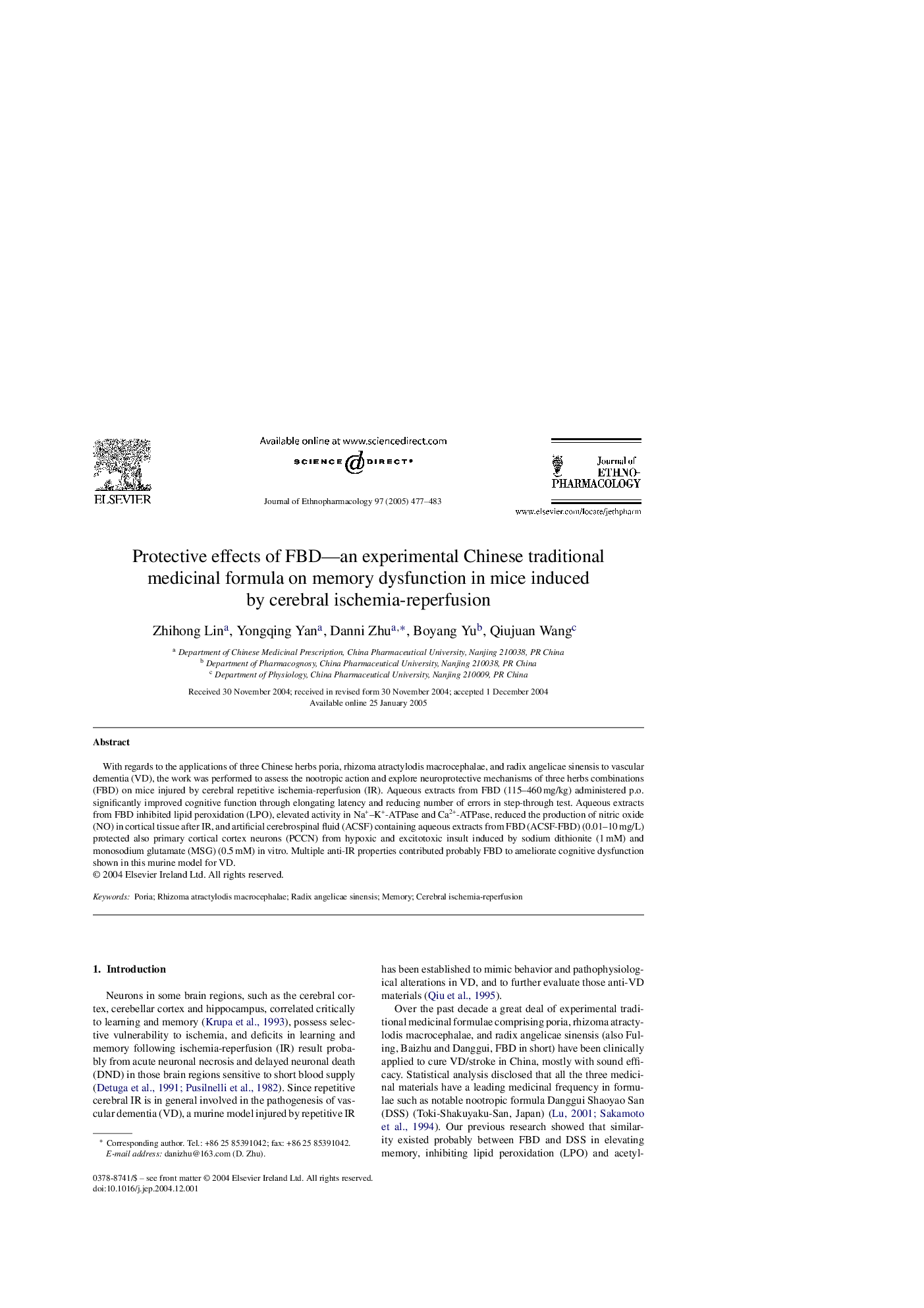| Article ID | Journal | Published Year | Pages | File Type |
|---|---|---|---|---|
| 9009832 | Journal of Ethnopharmacology | 2005 | 7 Pages |
Abstract
With regards to the applications of three Chinese herbs poria, rhizoma atractylodis macrocephalae, and radix angelicae sinensis to vascular dementia (VD), the work was performed to assess the nootropic action and explore neuroprotective mechanisms of three herbs combinations (FBD) on mice injured by cerebral repetitive ischemia-reperfusion (IR). Aqueous extracts from FBD (115-460Â mg/kg) administered p.o. significantly improved cognitive function through elongating latency and reducing number of errors in step-through test. Aqueous extracts from FBD inhibited lipid peroxidation (LPO), elevated activity in Na+-K+-ATPase and Ca2+-ATPase, reduced the production of nitric oxide (NO) in cortical tissue after IR, and artificial cerebrospinal fluid (ACSF) containing aqueous extracts from FBD (ACSF-FBD) (0.01-10Â mg/L) protected also primary cortical cortex neurons (PCCN) from hypoxic and excitotoxic insult induced by sodium dithionite (1Â mM) and monosodium glutamate (MSG) (0.5Â mM) in vitro. Multiple anti-IR properties contributed probably FBD to ameliorate cognitive dysfunction shown in this murine model for VD.
Keywords
Related Topics
Health Sciences
Pharmacology, Toxicology and Pharmaceutical Science
Pharmacology
Authors
Zhihong Lin, Yongqing Yan, Danni Zhu, Boyang Yu, Qiujuan Wang,
